What is ChatGPT?
ChatGPT is the best artificial intelligence chatbox ever released to the general public. It was built by the now famed San Francisco A.I. company, OpenAI, late in 2022, just weeks after the release of its image-generating sibling, DALL-E 2. Both made a splash, and ‘generative AI’ has since become a buzzword.
It’s no wonder. ChatGPT’s outputs seem smarter than previous versions of GPT and other language models. With a staggering 175 billion parameters, its capacities are extensive and its answers, delivered in a tone that sounds eerily human, seem more sensical.
It can produce full-length university-level research papers and working computer code. It can solve math problems step-by-step, write your English class poem, explain quantum physics in varying levels of complexity, write music, and give you recipes. It can even tell jokes and write scripts.
The one million users it drew just days after its launch in November have been conducting experiments to test the language model’s capacities. People have gone to Twitter to report ChatGPT’s clever responses to absurd prompts. Reporters at the Insider have asked it to write their cover letters, reply to online dating messages, and even do their jobs for them – with varying levels of success.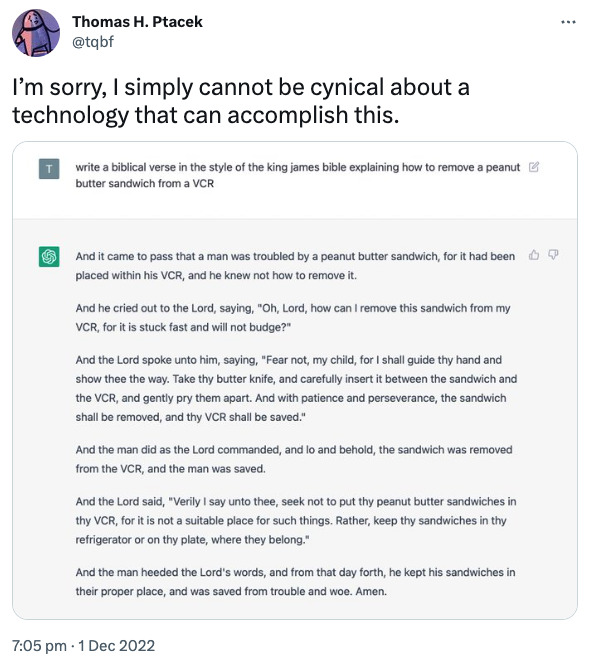
Can ChatGPT be Used by Marketers?
Content creation firm ‘Jasper’ used the tech behind ChatGPT to raise $125 million in Series A this past October. Likewise, Copy.AI raised $11 million in a Series A using early access to ChatGPT in 2021 for marketing. Of course, AI text generators are a familiar entity for researchers and technology companies like these. But what was once a proprietary tool licenced to tech companies for commercial use has now been made public on a user-friendly website interface anyone can access.
Researchers and reporters struggle to fully encapsulate the societal implications and potential dangers of testing beta-stage AI on such a massive public forum. There’s the negation problem, the misinformation problem, the contextualization problem… The list goes on.
But, when used correctly, language models can help people bring artificial intelligence and human prowess together to streamline work efficiency in various industries. For instance, marketing professionals can use ChatGPT to write compelling advertisements and social media copy as well as assist with SEO by generating keyword-rich text.
Among other things, ChatGPT can help marketers:
- Create transcriptions for video.
- Formulate effective keyword targeting suggestions.
- Check, debug, and explain errors in code.
- Assist in personalized messaging for email marketing.
- Generate more effective chatboxes and customer service tools.
- Create product descriptions, FAQs, and other marketing copy.
- Produce experiential activation and PR campaign ideas.
- Create the building blocks of a compelling blog or case study.
- Generate reports and summaries of industry trends.
This tool can help marketers optimize their time by eliminating some research and writing. It can also help businesses connect with their audiences by coming up with Twitter or email replies, allowing customer service reps and social media managers, for instance, to allocate their time elsewhere.
One of the most valuable capabilities of ChatGPT for marketers is its ability to develop unique campaign strategies. When asked to assist with ideas, the language model generated responses tailored to client type and geographic location.
ChatGPT: Prompt Examples
PROMPT: I’m working with a supplements brand that is looking to reach a young, female audience in their 20s. Please list six ideas that this audience is looking for from the supplement brand. For each idea, include a headline with an emoji and a description.
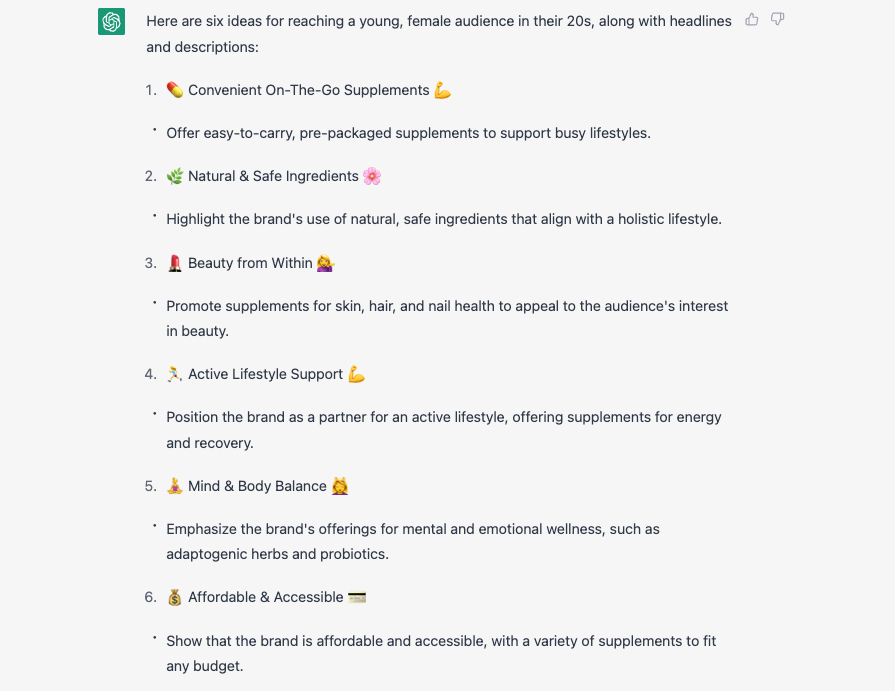
PROMPT: Please give me an experiential marketing campaign idea for a yoga studio in Vancouver.
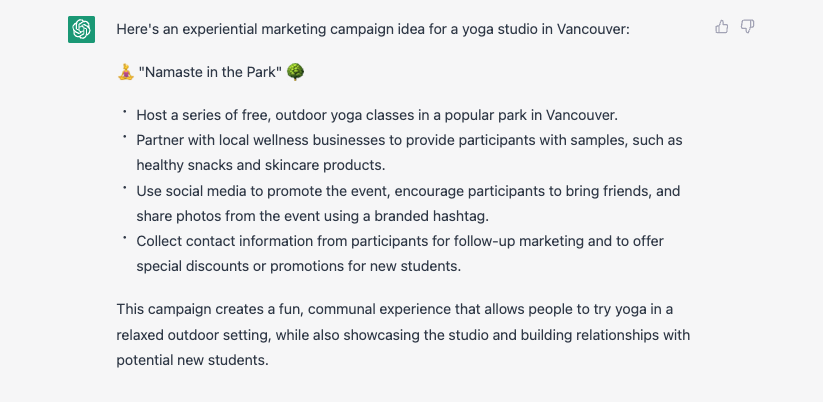
The Harm of AI in Marketing
Early testing shows the language model will oftentimes create misinformation when prompted. It produces clever-sounding essays or articles supporting debunked and even bizarre claims. And sometimes, it just makes things up. For example, it might tell you that a kilo of beef weighs more than a kilo or create a citation page of nonexistent articles. And despite OpenAI’s efforts, the tool certainly isn’t immune to human biases like racism or sexism.
The model’s proclivity for creating convincing arguments that are misleading, biased, or outright nonsensical is an apparent problem for marketers who might base a campaign on ChatGPT’s industry trend analysis. On a broader scale, the language model’s potential to become what the Washington Post calls a “misinformation machine” is a big concern.
Of course, companies who use ChatGPT should compare all outputs against their own research. But users also have to be careful of how they word prompts. For example, when asked the difference between two identical things, ChatGPT might relay an incorrect description or unusual answer to comply with the question’s wording.
Despite these issues, some businesses are already switching from person to machine. For example, reports by Forbes reveal that media company BuzzFeed plans to ramp up its use of generative AI and ChatGPT for content development. Meanwhile, the company announced they are cutting its workforce by 12%.
Many speculate that ChatGPT is an invaluable tool, and the sooner businesses get in on it, the better off they will be. That said, marketers need to remember that generative AI, no matter how impressive, hardly stacks up against the value of employees and freelancers – people who might have years of industry experience and large networks (not to mention the ability to understand context).
Blending generative AI with human oversight and expertise can effectively cut down time spent on certain tasks, like writing or research. It’s no doubt that ChatGPT can compile and reproduce swathes of information at a rate that people can’t. But, like with all new technologies, the problems and implications of ChatGPT are yet to be seen, so it’s best to proceed with caution.


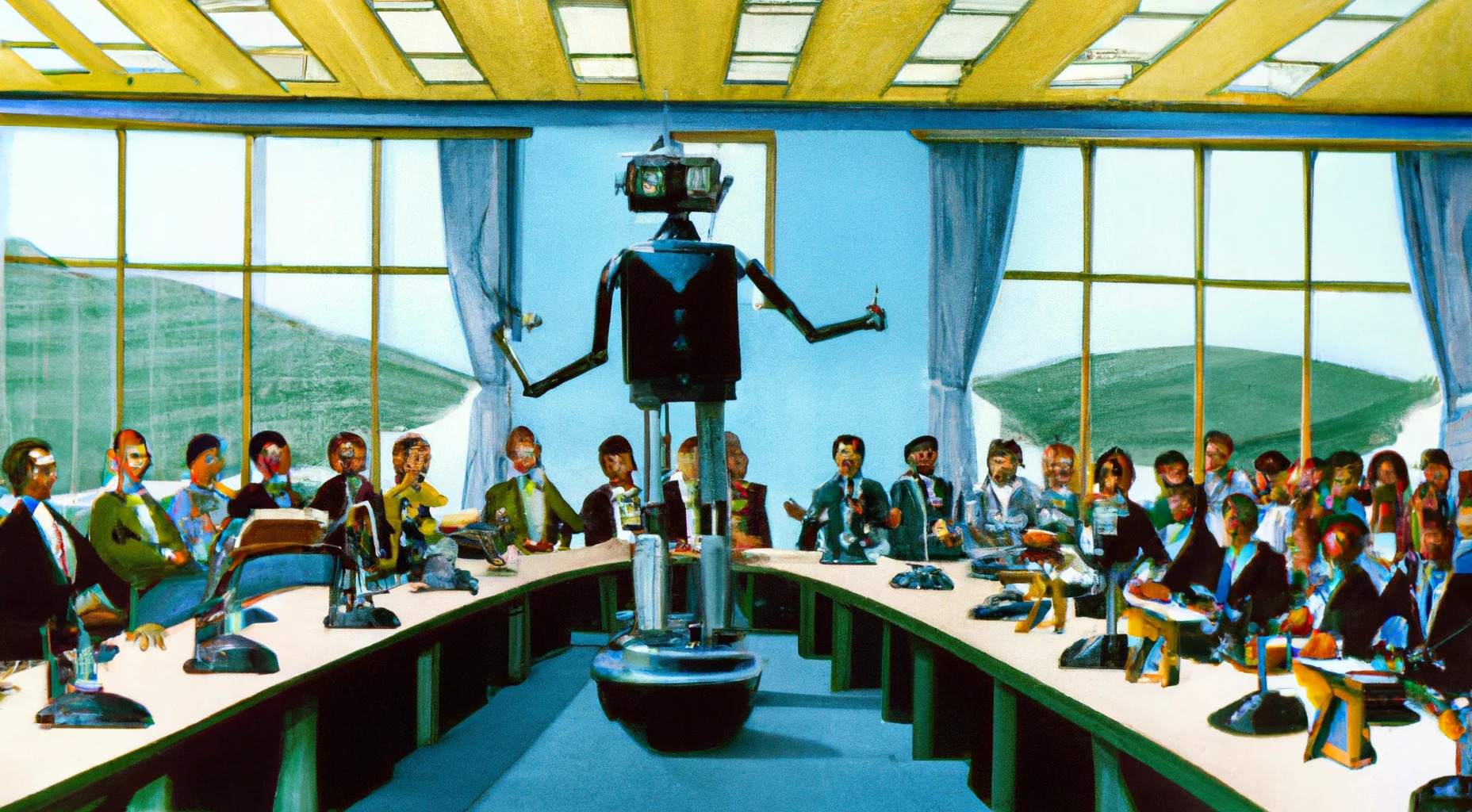

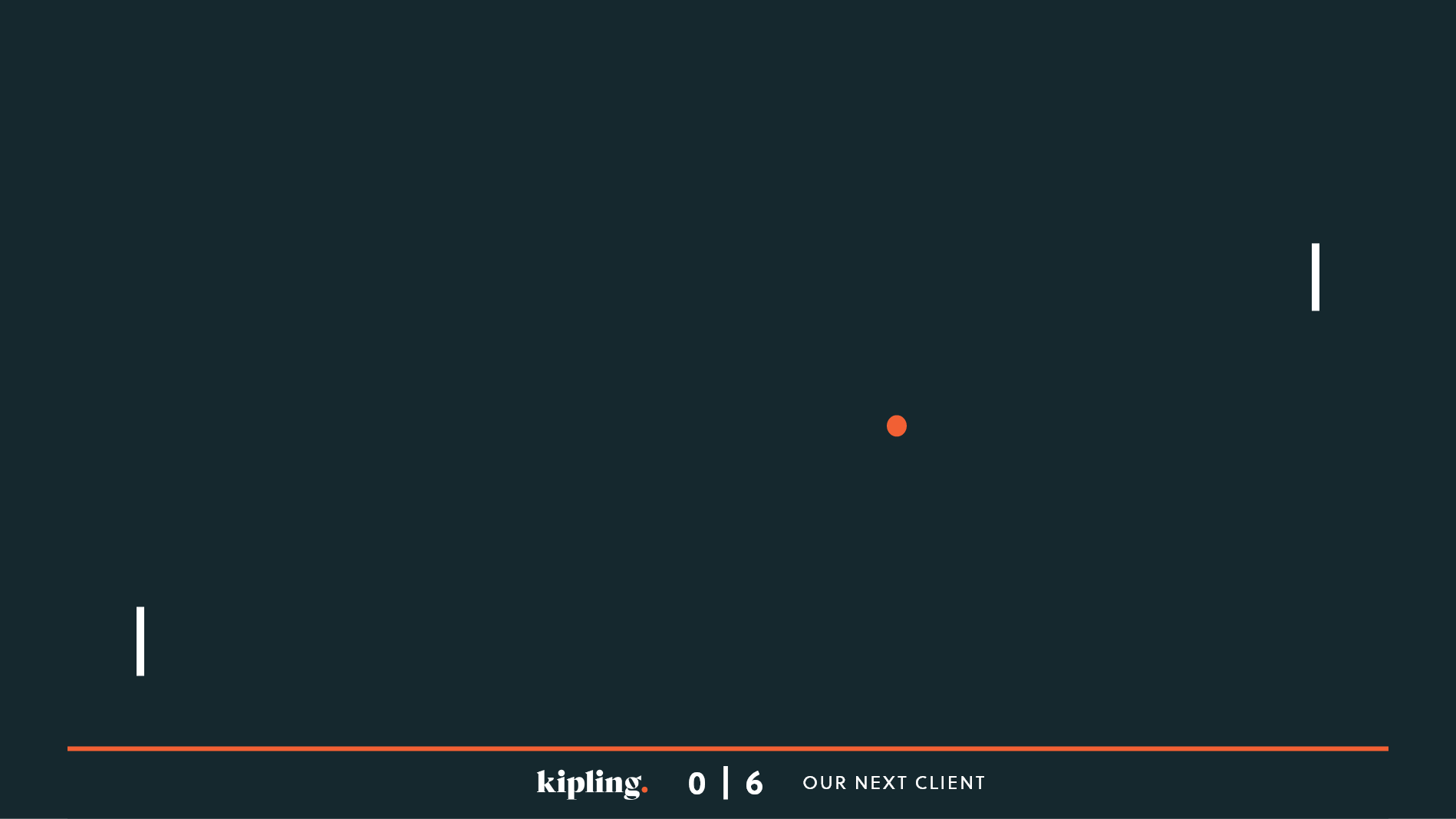

Comments